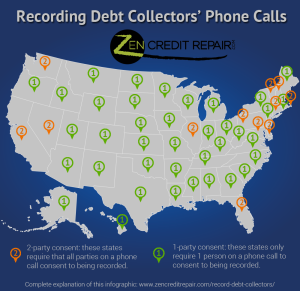If you have charge-offs or collection accounts on your credit report, you’ve probably heard that debts can no longer be collected after the statute of limitations expires. That’s true–sort of. The devil is in the details, though. So here are some important distinctions about running out the clock on old debt.
On a personal note, I have done this myself. I had a few charged-off credit cards that went into collections several years ago. Some lenders had sold the debt, and others had kept it and hired collection agencies to try and collect.
At this point, I was well into my credit repair journey, and I knew that if I could make it 4 yeas from the date of first delinquency (without getting sued or doing something to extend the statute of limitations–more on that later), I was home free. At the time though, 4 years (the statute of limitations in my state) sounded like forever.
Running out the clock should never be your Plan A. It’s more like Plan B, C, or D. But you need to be aware of the statute of limitations and some other important info no matter what your plans are.

